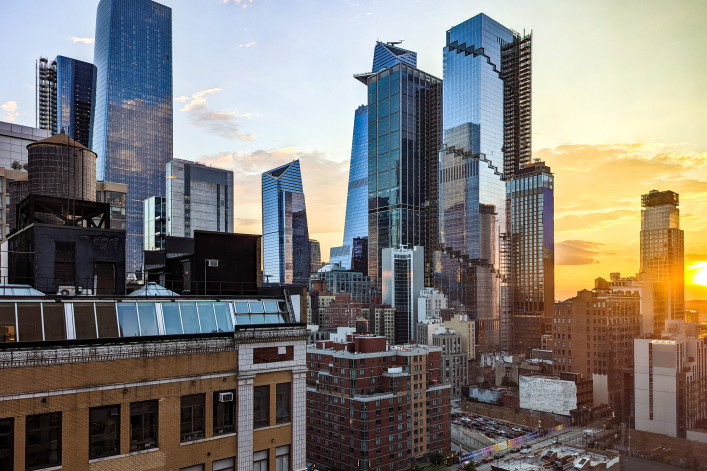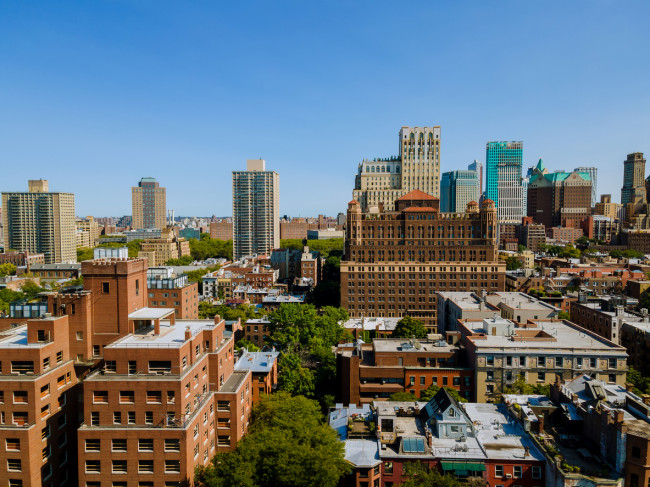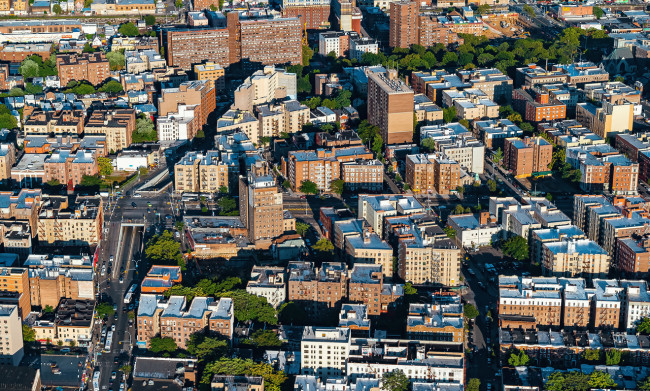How long does it take to find out if my NYC housing lottery application was accepted?
- After you first apply, it can take from two months to two years to know whether you were selected
- If you’re asked to submit documents, you should hear back in two to three weeks, but sometimes longer

There are housing lotteries available in all five boroughs, including in pricey neighborhoods such as Hudson Yards on Manhattan's West Side.
iStock
I was finally contacted to send in my paperwork for a housing lottery apartment, which I did, but it's been months and I have not received any other communication. After your paperwork has been submitted, how long does it take to find out whether or not you've been accepted?
You can expect to be notified whether you’ve been selected for a New York City housing lottery two or three weeks after you’ve sent in your documents, but it can take longer if there are more applicants in the process, according to the NYC Department of Housing Preservation and Development (HPD).
If there are few units left or a lot of applicants, the agency leasing the building may not notify you until they’re sure there’s an apartment available. But they will let you know if you’ve been approved or rejected, according to the HPD.
[Editor's note: Realty Bites tackles your NYC rental questions. Have a query for our experts? Drop us an email. We respect all requests for anonymity.]
Persistence required
Winning NYC’s housing lottery requires a lot of persistence and patience. Once you apply, it can take anywhere from two months to two years before you are contacted to submit your documents, said Aileen Reynolds, assistant commissioner of housing opportunity at the HPD. (On average, it took just over six months to approve an applicant for a housing lottery from June 2023 through June 2024, according to a city report.)
Occasionally, the selection process can be delayed if a developer needs more time to complete a building or has many units to lease up, Reynolds said.
“Usually it is due to factors outside the city’s control that may cause longer lease-up times,” Reynolds said. “A lot of our lotteries are advertised before construction is completed, so if the building experiences construction delays, they will oftentimes pause or slow down the tenant selection process.”
Though it can take months or years, securing one of these rent-stabilized apartments can be life changing. Rent increases are capped for these units, shielding tenants from big rent hikes, and lease renewals are usually automatic, providing stability.
How to beat the odds
Every lottery gets tens of thousands of applications, Reynolds said. But only a fraction of those applicants land apartments; from June 2023 to June 2024, only 9,305 applicants were approved for a new apartment through the lottery, though that number represents a 5 percent increase from last year, according to the Mayor's Management Report.
The best way to increase your odds is to apply to multiple lotteries, Reynolds said. (But don’t apply to the same lottery twice, or you’ll be disqualified.)
“Applicants can apply to multiple lotteries at once and we encourage it as it would increase someone’s chances of being selected,” Reynolds said. “Applying to one does not impact the other.”
Look for a rejection notice
If you are rejected, you’ll receive a notice explaining why you weren’t selected; the same information will also appear on your NYC Housing Connect dashboard, according to the HPD.
You can appeal the decision through Housing Connect if you think the marketing agent—the private company leasing out the lottery building—made a mistake. The notice will detail how long you’ll have to appeal, but expect to act fast: You will only have 5 business days to submit an appeal, according to the HPD.































